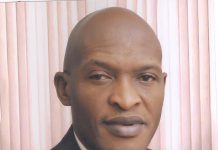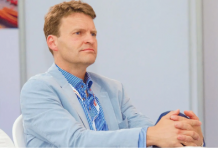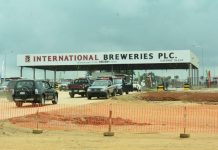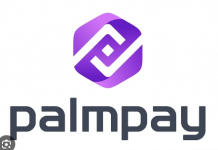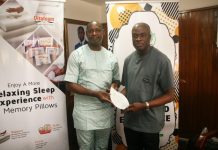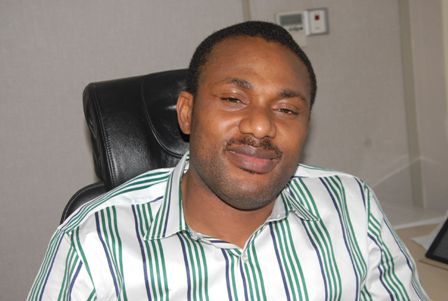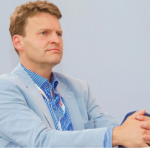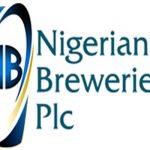“Data is the currency of the future, it is the most valuable asset that will determine the future competitive advantage and operational survival of any business” said MTN’s Olubayo Adekanmbi, Author, ‘The Future Is Shared’, although currently immensely untapped “In the 21st century, data can be equated to what Oil was in the 18th century”.
In his new book due to be launched in Nigeria on Saturday, 26th November, 2016 at the Oriental Hotel, Lekki , Victoria Island, Lagos, the Authour revealed that the only way to make sense of the complexity of today’s consumer is through use of data. “Any business that wants to win today must understand how a change in the weather, comments made on Twitter in a particular area, the traffic pattern, sensor information among others influence purchases and help to predict future business risk and opportunities, he declared.
This concept is beyond traditional research, where “customers tell us what we want to hear”. Data science takes it a step further by aggregating data on what customers post on social media, where they go, which ATM they used, which websites they visit, who they are seen with on a real-time basis to gain richer, contextual understanding of customers’ attitudes for profitable engagement. Every business, he explained, is a business of people, and the more a business understands the complex web of interactions and interconnections between customers, locations and machines, the better it is positioned to maximize value.
According to him, it is even more exciting in telecoms when you can understand the total unique numbers called, how many numbers called back and how a reduction in customers’ spending can be predicted by a reduction in activity from numbers that frequently call them. Churn can be better managed as a social event; rather than running after an individual with multiple offers, we can manage a cluster of customers who are socially connected and whose usage is socially interconnected. These and many more examples are what the social theory of consumption can explain using the power of data science.
In line with the growing global importance of data, Mr. Adekanmbi who recently returned to the country after a one-year PhD research sabbatical across the Uk, India and America said according to the Economist’s “In the 21st century, data can be equated to what Oil was in the 18th century”.
To make Nigeria ready for this ‘data boom’, Adekanbi will unveil his Corporate Social Responsibility initiative aimed at giving back to the society through Data Science Nigeria, a vehicle designed to consistently add value the nation’s wealth especially through the younger generation.
The inaugural edition of the practitioner-led model seminar will hold on Saturday 26 November 2016 between 12noon – 3pm at the Oriental Hotel, Lekki , Victoria Island, Lagos.
The faculty will be led by a US-based Nigerian leading data scientist and IBM Distinguished Engineer/Chief Data Scientist, Dr. Uyi Stewart. Dr. Uyi who holds 10 patents in the use of advanced analytics will be supported by other experienced, Nigerian-based practitioners such as Ngozi Dozie of OneFi, Kazeem Tewogbade of LeadPath, Dr. Femi Oyenuga of Oracle, Bunmi Okunowo of NITDA, Seun Onigbinde of BudgIT and Iyinoluwa Aboyeji, founder, Andela.
Similarly, he pointed out the logic in “sharing economy” is critical in the new economy. People have taken this logic to begin sharing their space, time and resources with friends and even unknown people in a socially connected and socially validated exchange ecosystem. “This pushes the idea that social dynamics occur not only with people you know but also with people you do not know who have extra capacity that they want to share on a real-time basis”.
An excerpt from the book further revealed power and relevance of sharing in the new age, “The Cowbell’s bulk-breaking approach is a classical precursor of the sharing economy when you have what you need to meet today’s need without carrying the additional cost of ownership. This is what I call ‘Miniaturisation of Need’. This is where your need for milk has been reduced or miniaturized to what you can afford in a low –unit portion pack. Essentially, need is miniaturized into buyer’s wallet size and delivered just-in-time and with no post-consumption liabilities”.
This is the success story of Uber or Airbnb, he said pointing out that the sharing economy is growing faster than Facebook, Google and Yahoo combined. “The sharing economy says that for every underutilized asset, like empty seats in your car on your way to Ibadan for the weekend, there are people who need it and are willing to pay for it. In the case of the empty-seat example, this goes beyond the social opportunity to meet new friends and have a mutually exciting journey. Yet, of course, in order for this to work there must be a social validation system and accountability platform built on trust.








